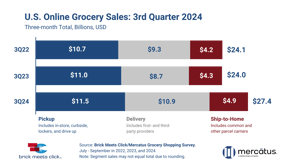Mintel: Sodium Is Next Trans Fat
Americans are consuming too much sodium and since they're confused about appropriate levels, CPG manufacturers aren't necessarily making reduction a priority, said Krista Faron, a senior analyst at Mintel during a webinar.
August 13, 2009
CHICAGO — Americans are consuming too much sodium and since they're confused about appropriate levels, CPG manufacturers aren't necessarily making reduction a priority, said Krista Faron, a senior analyst at Mintel here during a webinar yesterday.
"Consumers aren't begging for reductions, so many food companies have been rather slow to adopt change," she said.
Though shoppers aren't particularly vocal about the issue, there is a market for low/no/reduced sodium products. More than one in four (26%) consumers polled by Mintel monitor their sodium consumption and have modified behaviors, 45% are "on the fence" about the issue, and 29% don't pay any attention to sodium intake.
The Centers for Disease Control and Prevention suggest a sodium limit of 2300 mg per day for those not at high risk for hypertension, and a 1500 mg limit for those who are. Although seven in 10 Americans comprise the latter group, the average person consumes more than 3400 mg of sodium per day, according to Mintel.
"Compounding the problem is we love processed and prepared foods," Faron said. "They make up more than three-quarters of our sodium intake."
Reduced sodium claims may be taking a back seat to claims about trans fat and fat reductions, she noted. "U.S. foods making low/no/reduced sodium claims on pack have been relatively static since 2005, hovering around two percent of all food introductions for the last five years," she said.
The number is low considering that so far in 2009, 10% of new products introduced have made low/no/reduced trans fat or fat claims.
Read More of Today's Headlines
You May Also Like




